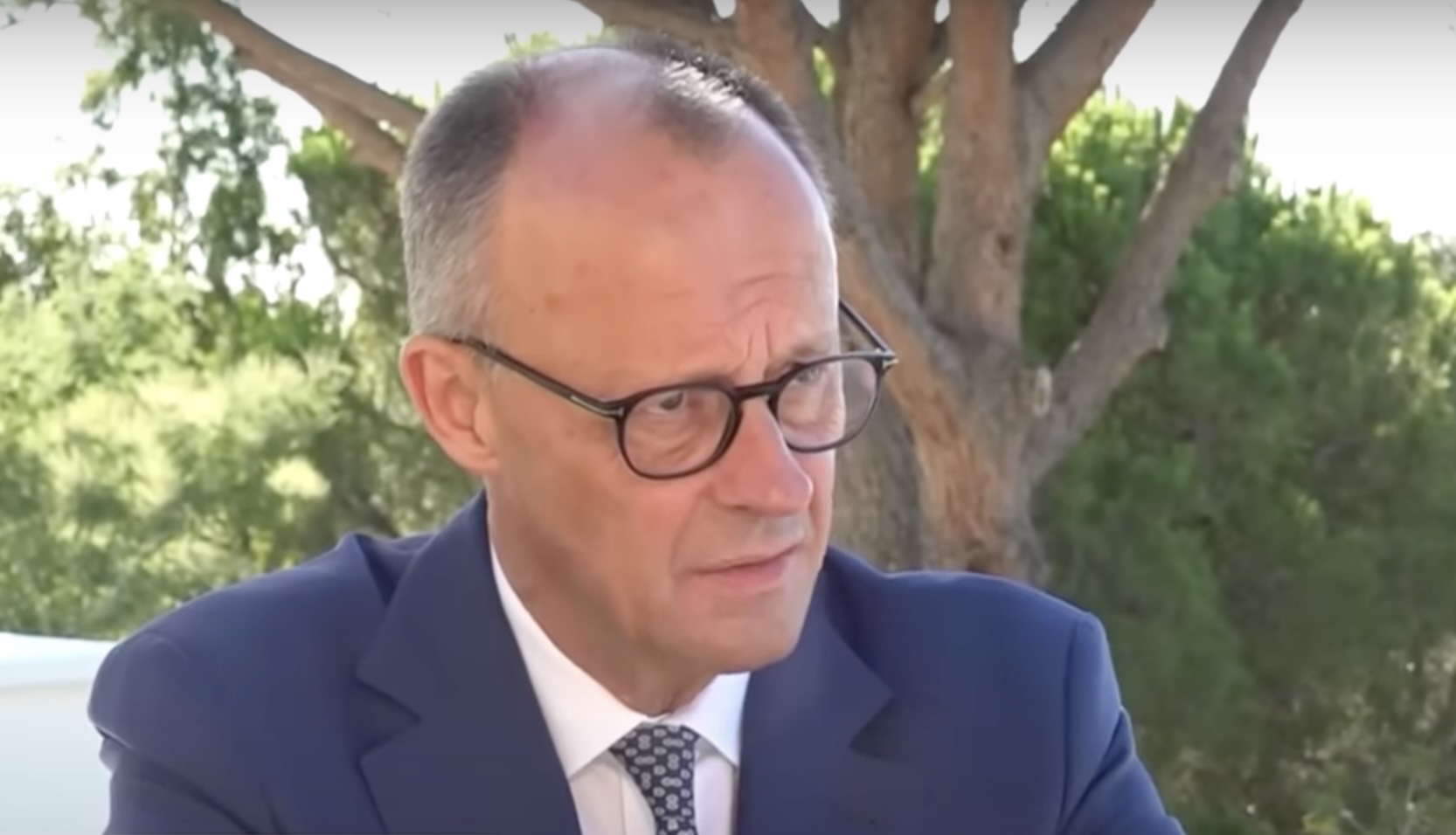


In an interview with LCI’s Darius Rochebin, he set out a response centred on NATO, closer Franco–German cooperation, and a realistic discussion on Europe’s nuclear posture.
Merz linked Russia’s war to wider pressure on European institutions. “Russia has attacked the second-largest country in Europe in terms of territory,” he said of Ukraine. Referring to President Vladimir Putin’s stated aims, he added: “When one listens to Putin and examines his doctrine, it is clear that he wants to restore the old Soviet Union in territorial terms.” He called the situation “very serious.”
He said the confrontation is already taking place across multiple domains. “Every day… he attacks our infrastructure and… tries to influence public opinion,” Merz said, citing German intelligence assessments. “We are already in a conflict with Russia.” He argued the objective is not a reaction to NATO but a challenge to democratic systems: “[Putin] does not feel threatened by NATO. He feels threatened by the strength of democracy, of freedom.”
Merz placed the Franco–German relationship at the centre of Europe’s response. He had been invited to Fort Brégançon for consultations with President Emmanuel Macron and said: “Europe will only advance if France and Germany work closely together… together we are the engine of Europe.” He supported joint capabilities rather than transactional purchases: “We must develop systems of arms that are good for France and Germany.”
On force structure, Merz said Berlin is preparing legislation to rebuild military readiness. He described Germany’s 2011 suspension of conscription as “a mistake” and confirmed work on a recruitment law to raise the Bundeswehr’s quality and numbers. “If it does not work on the basis of volunteering, then we will have to resort to military service,” he said, while acknowledging the complexity of issues such as integrating women and adapting to threats including drones and cyber operations.
Merz stated that NATO remains the core of German and European security. Asked who protects Germany today, he replied: “NATO… The United States, of course. France as well.” He said Berlin intends to “maintain good cooperation within NATO with the Americans,” including reliance on the US nuclear umbrella.
He confirmed that discussion of European nuclear deterrence with France is possible, though sensitive. Recalling earlier French offers, he said: “It is imaginable, and we must talk about it. But it is very complicated… it is not the kind of decision that we are going to take just like that.” He added that a broader conversation on deterrence also involves the United Kingdom. For now, he said he does not seek to alter NATO’s configuration but wants Europeans to “put our own security on European soil to the fore and talk about it more.”
Merz connected outcomes in Ukraine to behaviour elsewhere, including in Asia. While declining direct comparisons, he said China’s posture is becoming more assertive around Taiwan and in the South China Sea. “If Ukraine falls, it will encourage countries like China to be even more aggressive—for example vis-à-vis Taiwan,” he said. Europe should aim for constructive ties with Beijing, he added, but “we must not allow ourselves to be muzzled.”
He argued that the post-Cold War interlude has ended. “We are confronted with heads of state who are no longer prepared to accept common rules of international law,” he said, naming Russia, China and North Korea. International conventions, he added, are not being respected as before. The implication, he said, is a more demanding security environment for Europe.
Merz also addressed information operations and domestic politics. He said there is “at least one party” in the Bundestag “very close to Putin,” with “quite a few sympathisers,” and characterised this as an issue for Germany’s democratic debate. He distinguished between Russia’s leadership and its people, expressing hope for good-neighbourly relations in the future while stating that Europe will be dealing with an authoritarian regime “for years.”
He tied security to economic stability. Merz said Berlin had adjusted its budget framework at the start of the year and enabled a €500 billion, 12-year infrastructure investment programme, roughly €40 billion annually across the Länder. He reiterated the intention to respect the Maastricht criteria and warned against inflation, which he said affects lower-income households most. On transatlantic trade, he said Paris and Berlin had accepted a negotiated outcome with Washington “even if it expresses our weakness and our dependence,” and would work to strengthen Europe’s position.
Merz’s message was that Europe should reinforce defence rapidly, keep NATO at the core, deepen Franco–German industrial and strategic cooperation, sustain Ukraine, and hold a careful dialogue on deterrence with France and the UK. “The whole world is watching what we do to help Ukraine,” he said.
If Russia Wins: A Scenario and the Logic of the West’s Managed Defeat